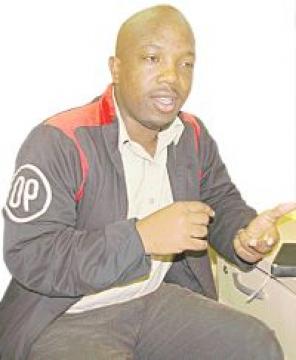PUDEMO in new school syllabus

MBABANE – High school pupils will, from next January, officially learn about the activities and demands of the People’s United Democratic Movement (PUDEMO).
This extensive topic on the proscribed political party will form part of the 2010 – 2011 curriculum.
This newspaper has confirmed that the political party’s aspirations and activities will form part of the History syllabus for Form Four and Five learners. This is a result of the localisation of the Cambridge curriculum, which is now known as Swaziland General Certificate of Secondary Education (SGCSE). Documents in our possession show that Syllabus 6891 (History) contains various issues as part of the core content.
Teachers will be expected to focus on how Swaziland achieved independence, what the main political developments in the kingdom have been and social and economic developments since 1945. Under ‘main political developments,’ pupils will be expected to know answers to such questions as: How did King Sobhuza II unify the Swazi nation? Why did King Sobhuza II act as he did between 1973 and 1974? Why were there internal disputes between 1984 and 1986 and how did the king settle these?
Pupils will also be expected to learn about the impact of the intensification of racial discrimination in South Africa, British rule in Swaziland the increased political activity in the 1960s and the different political parties. The 1964 election, the new constitution and the country’s independence from Britain in 1968 will also be discussed during lessons.
A copy of the syllabus, in our possession, reveals that the repeal of the constitution in 1973 and introduction of the Tinkhundla system in 1974 will also be discussed.
So will the then new Parliament of 1979. The return of Prince Makhosetive (now King Mswati III), the abolition of the former Liqoqo (revived by the new constitution in 2005) and the 1987 elections will also be discussed in History classes.
Pupils will be expected to know answers to questions like: How successfully has Swaziland developed socially and economically since independence and how have developments in South Africa affected Swaziland?
Other points that learners will be taught on, be expected to research and ultimately respond to as part of the final SGCSE exam include:
*Why wasn’t Swaziland incorporated into South Africa after the Second World War?
* Why did political activity in Swaziland intensify in the 1960s?
* How did King Sobhuza II unify the nation?
* What reforms were introduced in 1973 and 1974?
* How effective have the activities of UN agencies in Swaziland been?
* The reforms of the early 1990s.
* The relationship between government and the judiciary, parliament and the press after the year 2000.
* The contribution of Swaziland to the struggle against the apartheid regime in South Africa as well as border disputes between South Africa and Swaziland.
It’s too good to be true – SWAYOCO
MBABANE – The banned Swaziland Youth Congress (SWAYOCO) is pleased with government for recognising the efforts of progressive forces to bring change in the country.
The party has welcomed the idea that pupils would be taught about politics.
SWAYOCO, a PUDEMO youth wing, is happy that pupils will have an opportunity to learn about the ideals and demands of the party as part of their History syllabus. According to President Wandile Dludlu, it would not have been fair to talk about the history of the country but leave out the struggle waged by PUDEMO and SWAYOCO.
He says the parties have been through thick and thin, with government shutting its doors to change and dialogue. Dludlu said his party was ready to contribute to the pupils’ learning. “We are better placed to take this opportunity with both hands and have all the material, they will need for successful learning.”
Dludlu noted that: “you cannot speak to anyone about political development and the history of the country without talking about the demands and activities wedged by PUDEMO.”He said SWAYOCO had presented a whole new dimension in the country’s politics.
“From the 50s and 60s, there has never been a political youth organ that set out to play a role in reshaping the country’s politics,” he said.
“You cannot speak to anyone about the political development history of the country without talking about the demands and activities wedged by our party.”
He said his party had suffered a lot of injustice while government fortified its grip on power.




 del.icio.us
del.icio.us Digg
Digg